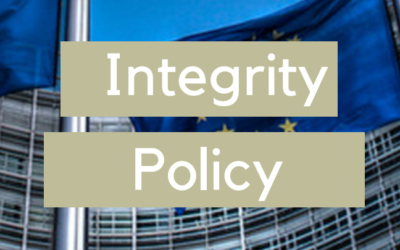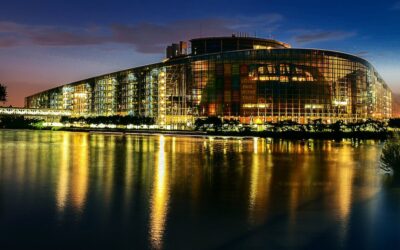The Tenth Legislature of the European Parliament, meeting in Strasbourg, elected the new President of the European Commission. With 401 votes, the Parliament granted outgoing President Ursula von der Leyen a second term.
Before discussing the vote for President von der Leyen, it is necessary to provide some context. The European elections in June saw a general decline in voter turnout across the Member States. The main takeaway, however, is the noticeable shift to the right in Europe, which is also reflected in the new Parliament.
The rise of two right-wing groups within the ECR—Patriots for Europe (Patriots) and Europe of Sovereign Nations (ESN), which have diminished the old Identity and Democracy (ID) group—has led to the reimplementation of the so-called “cordon sanitaire.” The EPP, S&D, and Renew have excluded the Patriots and ESN from the presidency of all twenty committees. The underlying idea is to prevent the Eurosceptic far-right from holding any key dossiers, particularly isolating Orbán’s group.
The so-called “Ursula majority” has thus maintained its central role, despite the liberals being significantly reduced and the socialists losing ground. Facing a non-overwhelming majority, von der Leyen anticipated what could be a recurring dynamic in the next legislature: seeking variable-geometry alliances to counter the Eurosceptic right, where the main partners of the majority will likely be the Greens (Greens/EFA) and the conservatives (ECR).
Despite the lack of support from the ECR during the vote, the group will be an important interlocutor. The shift to the right among Eurosceptics has brought the ECR closer to the majority, and the Italian delegation of the ECR had extensive discussions with von der Leyen, although an agreement was not finalized. The decisive rapprochement, however, occurred with the Greens, who decided to support the outgoing president for a second term.
The themes addressed in Ursula von der Leyen’s speech were many and quite broad, indicating the president’s desire to expand the majority. Regarding economic growth, the first novelty is undoubtedly the introduction of a commissioner for European SMEs. The goal is to simplify bureaucratic procedures and promote the development and growth of European companies. In this regard, von der Leyen emphasized the need to grow and support European companies by completing the union of markets and financial services. This union would allow companies to remain in Europe and have access to credit and investments.
On common defense, von der Leyen supports the common Europeanist groups’ line to increase joint investments. This would create a single defense market, favoring an internal armament supply chain within the Union. This, of course, without sidelining the Atlantic Alliance, which remains an undisputed pillar of European defense. A very tough line was drawn against Orbán’s initiative in Moscow, which von der Leyen described as appeasement.
Regarding foreign policy, the position on Ukraine was reinforced by promising Kyiv maximum support until a just peace is achieved. A notable announcement is the establishment of a commissioner for the Mediterranean, which is linked to the explicit mention of the conflict in the Middle East. On this issue, von der Leyen reiterated the EU’s support for the Two-State Solution for Israel and Palestine. She also mentioned the Western Balkans, Georgia, and Moldova, demonstrating her intention to continue the enlargement process.
Another critical issue is the ecological transition, for which a two-pronged approach was outlined. On one hand, the creation of a “New Clean Industrial Deal,” a sustainable and zero-impact industrialization plan. This point is crucial for the three majority forces and was a condition for their support of von der Leyen. On the other hand, von der Leyen aims to continue combating climate change for future generations, acting decisively without backtracking on the Green Deal.
Finally, another crucial aspect that von der Leyen chose to address in her speech concerns the European agricultural sector. Following protests, the president decided to meet farmers’ demands by launching the “Strategic Farming Dialogue,” which has three objectives: ensuring farmers’ access to loans, rewarding best practices in the sector, and protecting small and medium-sized producers from price fluctuations and unfair practices.
The next five years will be decisive: from meeting the Green Deal targets to defining the new common budget to positioning the Union in the geopolitical scenario. Amidst the ongoing conflicts in Ukraine and the Middle East, the EU will need to take a stance on China in the Indo-Pacific, also considering the upcoming U.S. presidential elections in November.


